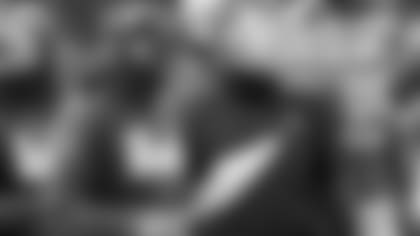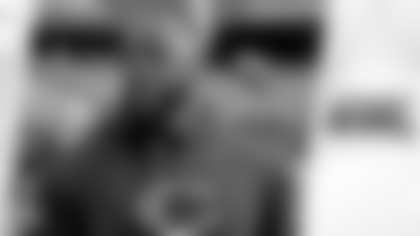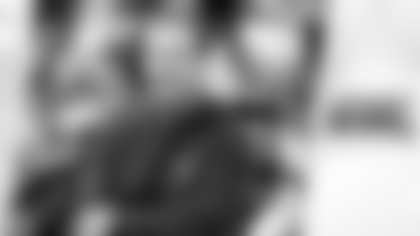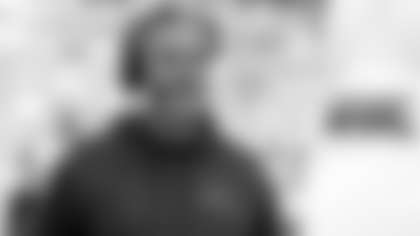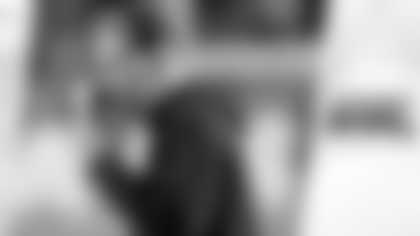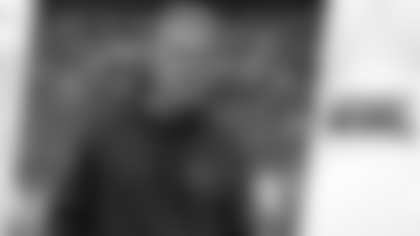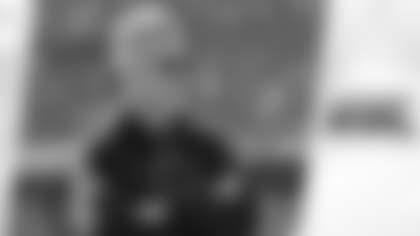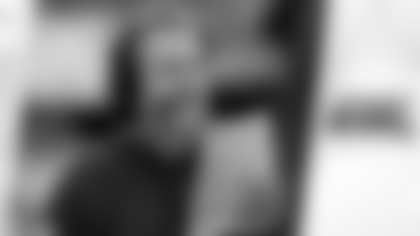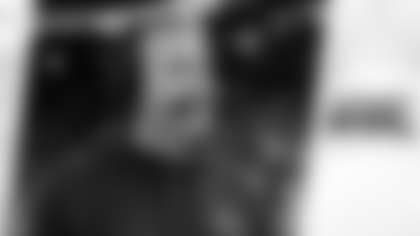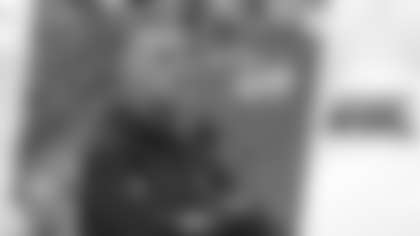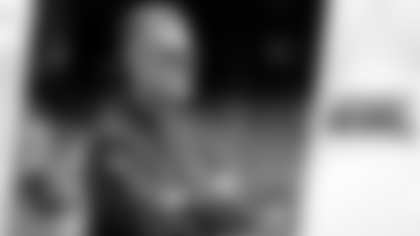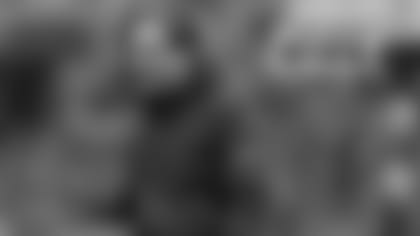After watching tape of Sunday's 19-11 loss to the Indianapolis Colts at Soldier Field, Bears coach Matt Nagy on Monday discussed three things that stood out to him in his team's first defeat of the season:
(1) The inability to run the ball caused the offense to become one-dimensional.
After rushing for 149, 135 and 130 yards in their first three games, the Bears were limited to just 28 yards on 16 carries, with a long gain of six yards, by a Colts defense that entered Week 4 ranked fourth in the NFL against the run.
"That is a good front that we played, [and] the linebackers fly around," Nagy said. "They did a good job, and I think that's going to be one of the better defenses that we see all year long, and we're going to see a lot of good ones coming up here. Whichever way it is, it doesn't matter. We have to be able to run the football. We cannot be one-dimensional."
With little room to maneuver, David Montgomery rushed for 27 yards on 10 carries and Cordarrelle Patterson gained five yards on three carries. The lack of success on the ground created unfavorable second-and-long and third-and-long situations, and the results were predictable. Through the first three quarters, the Bears offense produced just one field goal on eight possessions, mustering only 67 yards on 30 plays while converting 2-of-9 third-down opportunities.
Nagy has faith that Bears players and coaches will reinvigorate what had appeared to be a resurgent running game. To that end, he's confident that Sunday's issues will prove to be an anomaly rather than the beginning of a downward trend.
"We've just got to stay with it," Nagy said. "We can't get caught off guard and all of a sudden try to be one-dimensional, and that's my job. When teams know that you're going to run the football, are you able to run the football? If you can do that, then you're going to be a pretty good football team.
"Because now what happens is, it's beautiful, because it sets up play-actions and now guys are open because the linebackers are trying to fly and stop the run. It sets up screens because now the D-line is rushing upfield. It makes things a lot easier. I love going second-and-two. I don't think there were a lot of second-and-twos yesterday; [there were] a lot of second-and-eights, a lot of second-and-nines and a couple of second-and-19s. So that first down moving forward has to be better, and I have all the faith in the world in our guys that they'll do that."
(2) Despite a new starting quarterback in veteran Nick Foles, the offense experienced the same problems on third down and in the red zone.
The Bears entered Week 4 ranked 28th in the NFL in third-down efficiency and 25th in red-zone touchdown percentage and continued to sputter in both areas. They converted just 2-of-10 third downs on their first nine drives and 4-of-14 for the game. The Bears were 1-of-6 on third down in the first half with Foles just like they were a week earlier in Atlanta with Mitchell Trubisky playing quarterback.
"This has been a theme for us," Nagy said. "So what we've got to make sure we do as coaches is make sure that we are putting these guys in the best position possible to help them out, and then when we do that, when we put them in a good play, then they've got to execute. That's the give and take on both sides."
Foles was 0-of-5 passing on third downs in the first half Sunday. His costliest incompletion came when he threw wide of tight end Demetrius Harris on third-and-five from the Colts' 9 early in the second quarter. The Bears were forced to settle for Cairo Santos' 27-yard field goal, cutting the deficit to 7-3.
"They zoned us out, which we were expecting," Nagy said. "The ball was just thrown a little bit outside. I think Nick was concerned, when you go back and look at it, of his vision of not being able to see if there was a hook-to-curl defender that was going to buzz in front of the route that we ran on the outside. We've got to be more effective there in that situation."
Nagy understands that Foles' timing and cohesiveness with his receivers won't be perfect immediately. But there's also a sense of urgency for the Bears to rebound from Sunday's loss Thursday night when they host the Tampa Bay Buccaneers. "I talked this morning a little bit about calibrating us as an offense, Nick as a quarterback getting calibrated and myself with him getting calibrated in regards to working this process," Nagy said. "We've got to get on that and roll. It's time."
(3) The Bears defense performed well enough to win, buckling down allowing the Colts' lone touchdown of the game on Indianapolis' first possession.
After Philip Rivers hit tight end Mo Alie-Cox with a 13-yard TD pass midway through the first quarter, the Bears kept the Colts out of the end zone the rest of the contest. The defense forced Indianapolis to settle for field goals on 3 of 4 red-zone possessions after the Colts had reached the Bears' 3, 8 and 10.
"I thought our defense played well," Nagy said. "There were just a couple runs that they had—that's a good football team running the ball—but for the most part I felt they played really well. They flew around and did their job. Nineteen points is enough for us to win a football game."
The Bears allowed season lows in first downs (18), total yards (289) and passing yards (186) in Sunday's loss. It was reminiscent of last year's performance against Rivers when he played for the Los Angeles Chargers. The Bears permitted season lows in first downs (11) and rushing yards (36) but blew a 16-7 lead in a 17-16 loss.
Although the defense may have played well enough to win Sunday, it still left room for improvement. The unit did not generate a takeaway, recorded just one sack of Rivers and drew five penalties—four of which were accepted—including two pass-interference fouls on Kyle Fuller.



